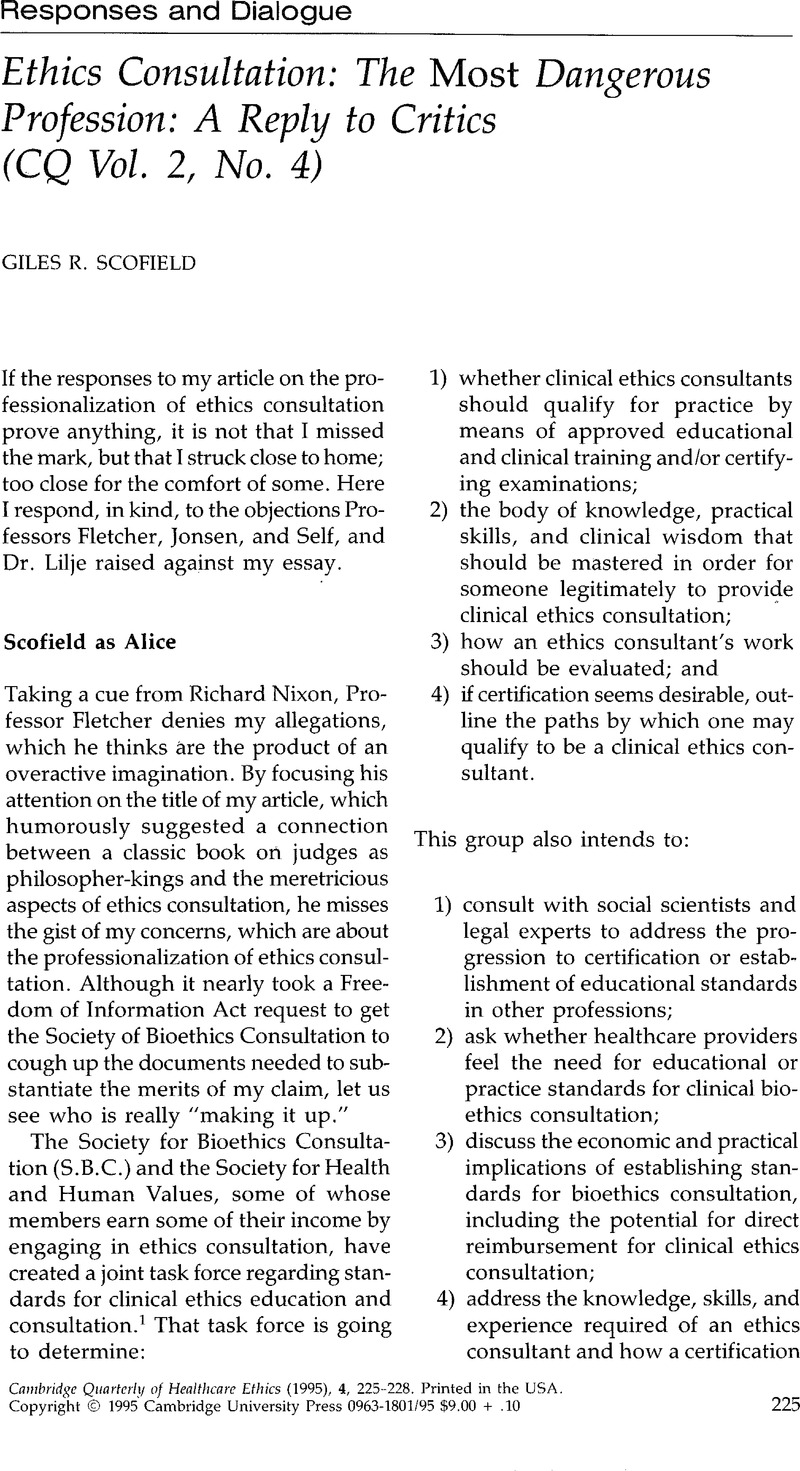Published online by Cambridge University Press: 29 July 2009

1. Frader, J, Arnold, R. Standards for clinical ethics consultation. Newsletter of the Society for Bioethics Consultation 1993; 2–3.Google Scholar
2. Society for Bioethics Consultation and Society for Health and Human Values Joint Proposal Regarding Standards for Clinical Ethics Education and Consultation, 02 24, 1994:5–6.Google Scholar
3. Fletcher, JC. Needed: a broader view of ethics consultation. Quality Review Bulletin 1992; 18(1): 14.Google ScholarPubMed Alternatively, Professor Fletcher could publish their proposal, following the example set by others. Spicker, SF, Ross, JW. Grant proposal: fund for the improvement of postsecondary education. HEC Forum 1993;5:52–72.Google Scholar
4. Society for Bioethics Consultation, Annual Meeting Minutes of September 13, 1992:3.Google Scholar
5. Jonsen, AR. The end of medical ethics. Journal of the American Geriatrics Society 1992; 40:395.CrossRefGoogle ScholarPubMed
6. Fox, E, Stocking, C. Ethics consultants' recompatients in a persistent vegetative state. Journal of the American Medical Association 1993; 270:2578–82.CrossRefGoogle Scholar
7. Although Professor Self is clearly conversant with his own writings, he either ignores or disregards contemporary works on demagoguery, feminism, and the Holocaust. Connor WR. The New Politicians of Fifth Century Athens. Princeton, NJ: Princeton University Press, 1971;Google ScholarTronto, JC. Moral Boundaries: A Political Argument for an Ethic of Care. New York: Routledge, 1993;Google ScholarBauman, Z. Modernity and the Holocaust. Ithaca, NY: Cornell University Press, 1989.Google Scholar
8. Starr, P. The Social Transformation of American Medicine. New York: Basic Books, 1982:15.Google Scholar
9. Sagan, E. The Honey and The Hemlock: Democracy and Paranoia in Ancient Athens and Modern America. Princeton, NJ: Princeton University Press, 1993.Google Scholar
10. Brint, S. Inan Age of Experts: The Changing Role of Professionals in Politics and Public Life. Princeton, NJ: Princeton University Press, 1994:204.Google Scholar